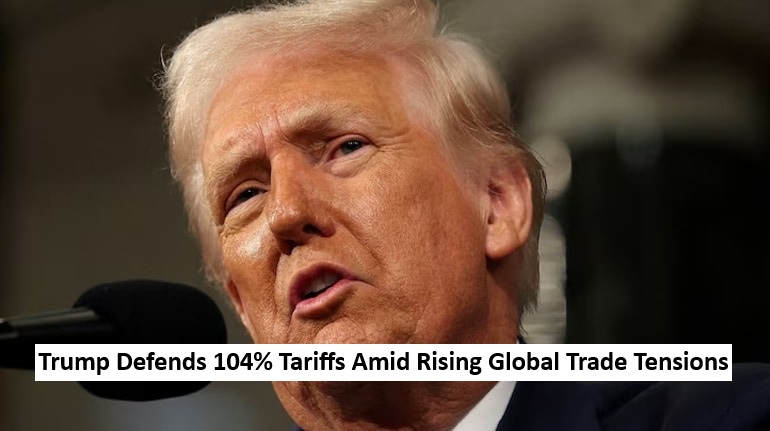
At a House Republican fundraising gala on April 8, President Donald Trump mocked foreign leaders attempting to negotiate trade deals, saying, “These countries are calling us up, kissing my ass.” Mimicking their pleas, Trump added, “Please, please sir make a deal. I’ll do anything, sir.”
Trump: “These countries are calling us up. Kissing my ass."
— Richard Hanania (@RichardHanania) April 9, 2025
Now you understand what this is all about. American businesses too, and the politicians they have influence over.
There is a plan. It’s to give himself power while the global economy tanks.
pic.twitter.com/h7MKSkSbc5
The comments came just hours before the U.S. implemented significant tariff hikes. On April 9, 2025, tariffs on Chinese imports surged to 104%, marking one of the most aggressive moves in Trump’s ongoing trade policy.
Push to Rebuild U.S. Manufacturing Faces Criticism
Trump reiterated his belief that these tariffs would pressure companies to return manufacturing operations to the United States. However, economists and business leaders warn that such changes may take years to materialize, if they happen at all. More immediately, they caution that consumers may face higher prices due to rising import costs, triggering inflation.
Internal GOP Dissent Over Trade Strategy
The president also criticized members of his own party who have challenged his trade strategy. “Let me tell you, you don't negotiate like I negotiate,” Trump said, dismissing calls for greater congressional oversight on trade matters.
Despite internal pressure, Trump remains committed to using tariffs as a primary economic tool. The administration’s approach continues to raise concerns among Republican senators, many of whom are urging for more transparency and economic analysis.
Global Impact Expands Beyond China
While China remains the primary focus, the U.S. has now extended tariffs to multiple trading partners, including the European Union and Japan. The broad application of these measures has heightened fears of global trade retaliation and long-term instability in international markets.
Experts Warn of Inflation and Market Instability
Economists argue that rather than reinvigorating domestic industry, these tariffs may lead to lasting economic strain. The risk of inflation is growing, and global supply chains are under increasing pressure. Observers stress that the effectiveness of the policy remains uncertain.
Read More: Miniskirts in Tehran? The Surprising Truth About Iran Before the Revolution

 Share
Share
_1152292510_100x75.jpg)

_1445939941_100x75.jpg)
